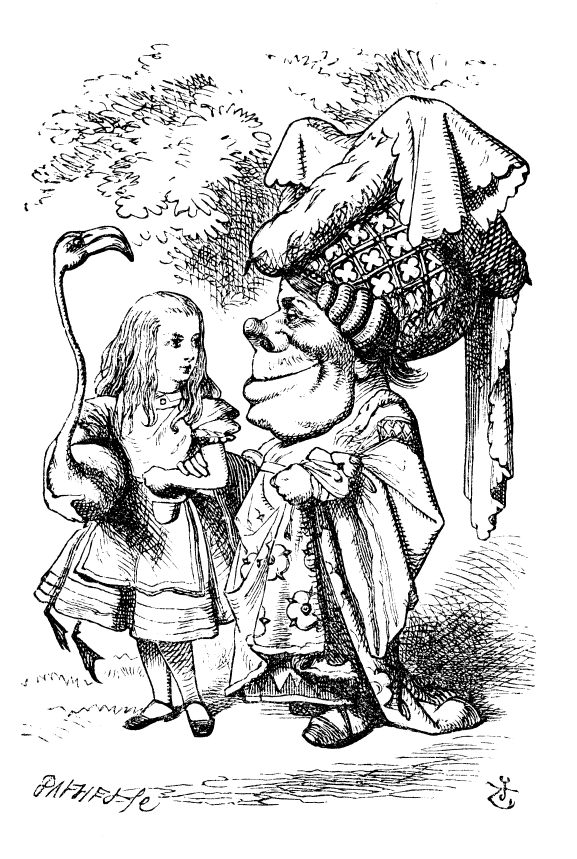 |
| This work is in the public domain in those countries with a copyright term of life of the author plus 80 years or less. |
-
36% of undergraduates admit to “paraphrasing/copying few sentences from Internet source without footnoting it.”
- 24% of graduate students self report doing the same
-
38% admit to “paraphrasing/copying few sentences from written source without footnoting it.”
- 25% of graduate students self report doing the same
-
14% of students admit to “fabricating/falsifying a bibliography”
- 7% of graduate students self report doing the same
-
7% self report copying materials “almost word for word from a written source without citation.”
- 4% of graduate students self report doing the same
-
7% self report “turning in work done by another.”
- 3% of graduate students self report doing the same
- 3% report “obtaining paper from term paper mill.”
- 2% of graduate students report doing so
 |
| Nina Paley [CC-BY-SA-3.0 (http://creativecommons.org/licenses/by-sa/3.0)], via Wikimedia Commons |
Examine the following list. What do all of these people have in common?
TS Eliot
Joe Biden, Jr.
Alex Haley
James Cameron
George Harrison
Helen Keller
Michael Jackson
Madonna
Dr. Martin Luther King, Jr.
Osama Bin Laden
Michael Bolton
Dan Brown
Dr. Jane Goodall
Stephen Ambrose
Doris Kearns Goodwin
James Frey
Kaavya Viswanathan
Vladimir Putin
Unfortunately, plagiarism is alive and well outside the ivory tower as well as inside it; therefore, if you answered that they are all plagiarists, you're right. They've all used the words or ideas of someone else and passed them off as their own in at least one instance. Some of them claim to have done it unintentionally, accidentally, or unwittingly. Others have blamed staff members for the error. In many instances, the incident has lead to court cases, public censure, and even a destruction of the person's credibility. Some, though, have passed seemingly unnoticed into the annals of history. Want to test your knowledge of some of the cases involving those listed above? Try your hand at the plagiarism trivia quiz.
Fun Fact: Plagiarism can alter the course of history. Don't believe me? Well, as the National Security Adviser, Condoleezza Rice wrote an op/ed piece for the New York Times in 2003 in which she accuses Saddam Hussein of plagiarism and cites that as a reason for the U.S. to pursue action against Iraq. This reference was picked up in news stories by CNN and other agencies as well as referenced frequently by Rice in the campaign for the invasion. The logic went as follows: Hussein, according to Rice, had plagiarized several passages in reports to the United Nations in its inquest into whether or not Iraq had WMDs. Hussein, again according to Rice, was lying to cover up the fact that WMDs existed. His plagiarism demonstrated to the international community he was untrustworthy. This proved, therefore, that WMDs existed and that action by the U.S. was justified. This wasn't the only reason given for the existence of WMDs, of course. In fact it has since come to light that much of the "evidence" for them was not gathered under the...uhm...strictest research conditions and evidence given to the British people to garner their support for the war in what has become known as the dodgy dossier was exaggerated and, ironically, plagiarized. In a humorous side note to history, a satirical post on the "List of X," a blog hosted by wordpress.com, recently listed the "10 Highlights of George W Bush Presidential Library." Number two on the list is, "An empty room, set aside to display the weapons of mass destruction built by Saddam Hussein’s regime in Iraq, and which should be found any day now."
 |
| By Various (top left bottom right top right bottom left) [Public domain or Public domain], via Wikimedia Commons |
 |
| By Durova (Wikimedia Commons) [Public domain], via Wikimedia Commons |
Secondly, there is the issue that Richard A. Posner addresses in his work, The Little Book of Plagiarism. In it, he contends that, yes, Shakespeare is a plagiarist, but at the same time, we need more plagiarists of Shakespeare's ilk. While this is a somewhat tongue-in-cheek statement, I would hope, he does describe the kernel of many scholarly defenses against the bard being named a cheater outright. Shakespeare is able to take the works of others and elevate it to a new level of artistry, poetry, and beauty. Simply put, the ends justify the means.
So to recap, the basic defense of Shakespeare not being impugned for being a plagiarist are 1) Everyone else was doing it, and 2) He improved on what he lifted. Perfectly acceptable logic, yes? Well, unless you are a student trying to defend your plagiarized work using either of these lines of logic, that is. Neither one will buy you any leniency with an instructor or disciplinary board. Why? Simple. You aren't William Shakespeare, at least not yet, and until then, you are expected to do your own work and correctly cite when you have used the work of others.
In The Little Book of Plagiarism, Posner also asserts that our current fanaticism with ferreting out and flogging plagiarists is a relatively new concept which results from the intersection of our cultural mores which celebrate and reward individual accomplishment and economics. Jonathon Bailey, a journalist who operates the site plagiarismtoday.com, asserts that the problem of plagiarism is compounded by spam blogs and social networking systems which make tracing plagiarists on the internet almost impossible.
Both authors contend that plagiarism, and the prosecution of it, is big business.
Examples of high profile cases such as those of Josh Linkner's Twitter account and Viacom vs. YouTube (which alleges copyright infringement) abound on the internet.
 | |||
| Image retrieved from flickr.com. Copyright Eva Rinaldi. Used through Creative Commons agreement. |
Most people can see why someone responsible for a particular work would want credit for their hard work and compensation due. Seems fair, right? Imagine, though, if you were Colin Purrington who is accused of plagiarizing...wait for it...himself. Students are often introduced to the idea of self-plagiarism when they've tried unsuccessfully (or unknowingly) to recycle parts of papers (or perhaps whole drafts) they've created for other classes or projects without citing this work as an outside source in the current work in question. This is a confusing and hard to grasp concept, especially for students who are connoisseurs of internet-based publications where articles are often reworked, rehashed, or sometimes simply re-posted with maybe a new headline from one forum to another. (See just about any article on Huffpost, Salon.com, and Alternet as an example.) These authors aren't punished (except perhaps by more observant readers who call out their laziness in the comments section). Instead, they are recognized publicly and paid for their time and efforts (or lack thereof as the case may be).
The case of Mr. Purrington, however, is more convoluted than this. You see, according to the Chronicle of Higher Education, he's not accused of plagiarizing himself directly. Instead, the Consortium for Plant Biotechnology Research which is a non-profit group that has awarded $140 M+ in federal and industry research grants since 1993 is suing Mr. Purrington for $150,000 for plagiarizing 1,200 words from their materials they say they developed in 2005. How did they become aware that Purrington was using this information? Because he contacted them. With an email stating he'd become aware of their use of his 1,200 words without giving him credit for the work. Purrington has documentation that the guide to designing scientific posters (which is at the center of the lawsuit) was published by him as early as 2001 while he was a biology professor at Swathmore. Despite this, the Consortium for Plant Biotechnology Research responded by sending Purrington a cease-and-desist letter and filing a lawsuit against him. Talk about following the white rabbit down the hole!
You can read some of the plagiarized passages and Purrington's requests for settlement on Retraction Watch. You can also view the CPBR document which caught Purrington's attention when it was posted on a site hosted by Purdue University as part of an upcoming poster contest. Purdue has since removed the document from it's hosted site, but you can view it here. You can also read Purrington's series of recent blogs on plagiarism and reducing it in the classroom on his page.

Please help me battle the dark lords at CPBR by signing this petition:
ReplyDeletehttp://colinpurrington.com/2013/petition-dorin-schumacher-cpbr/
I _know_ it's futile, but it makes me feel a little better.
Colin Purrington